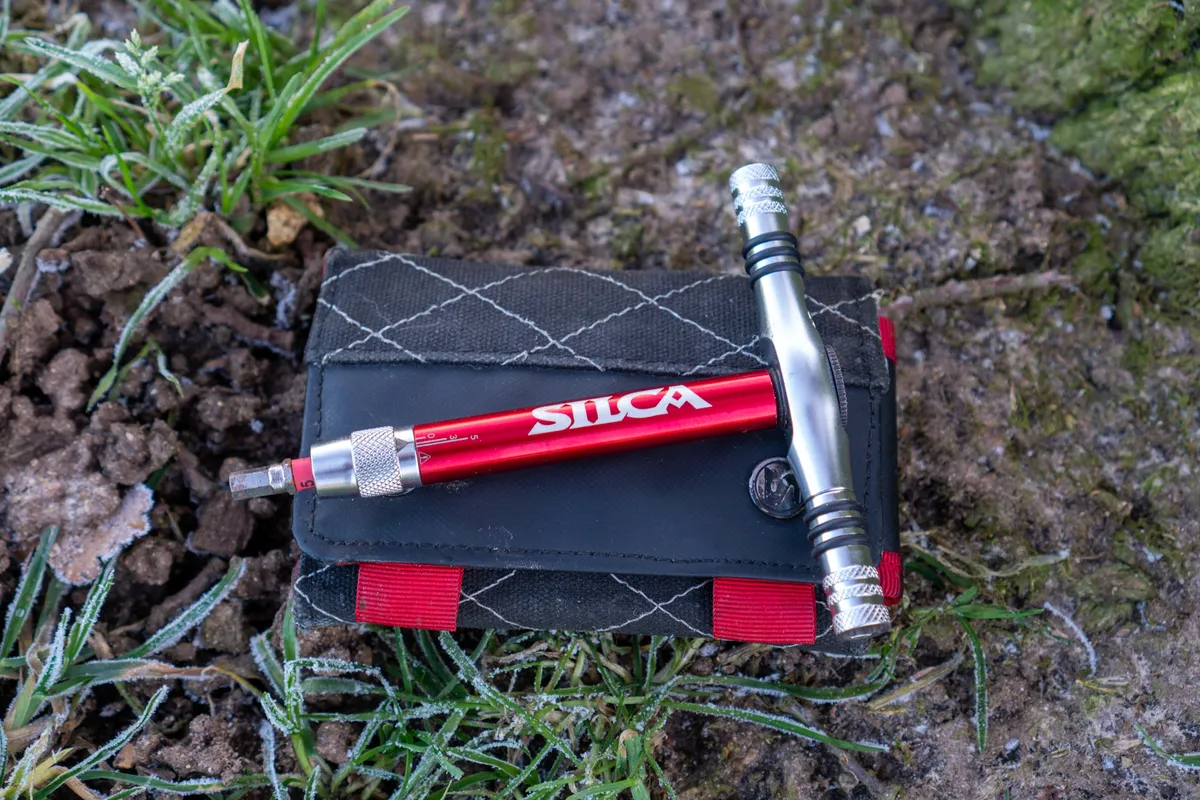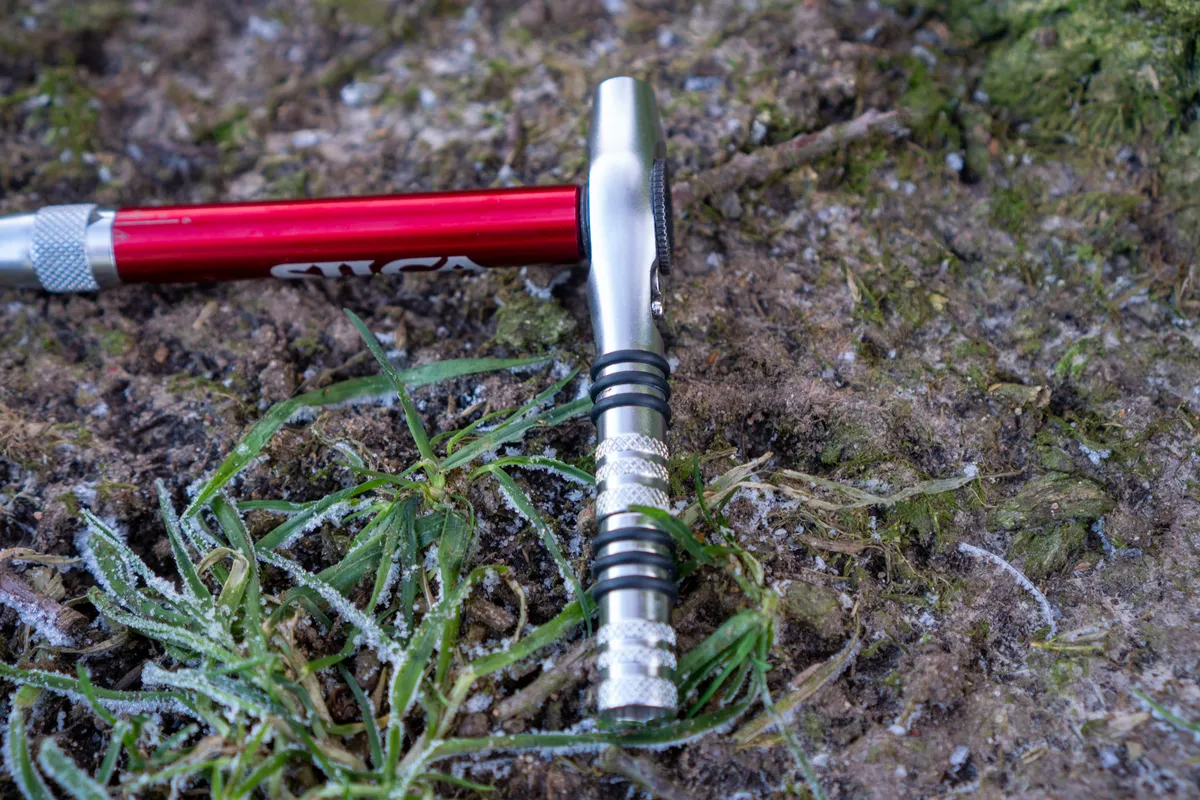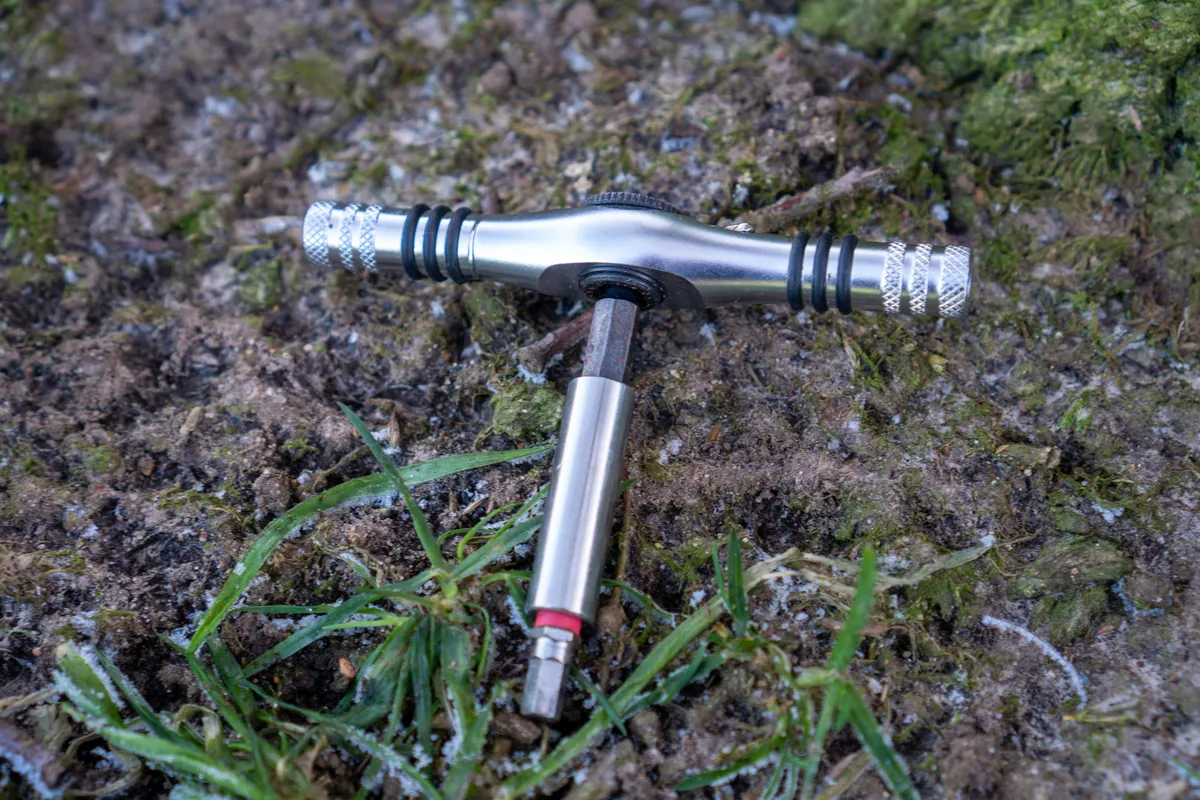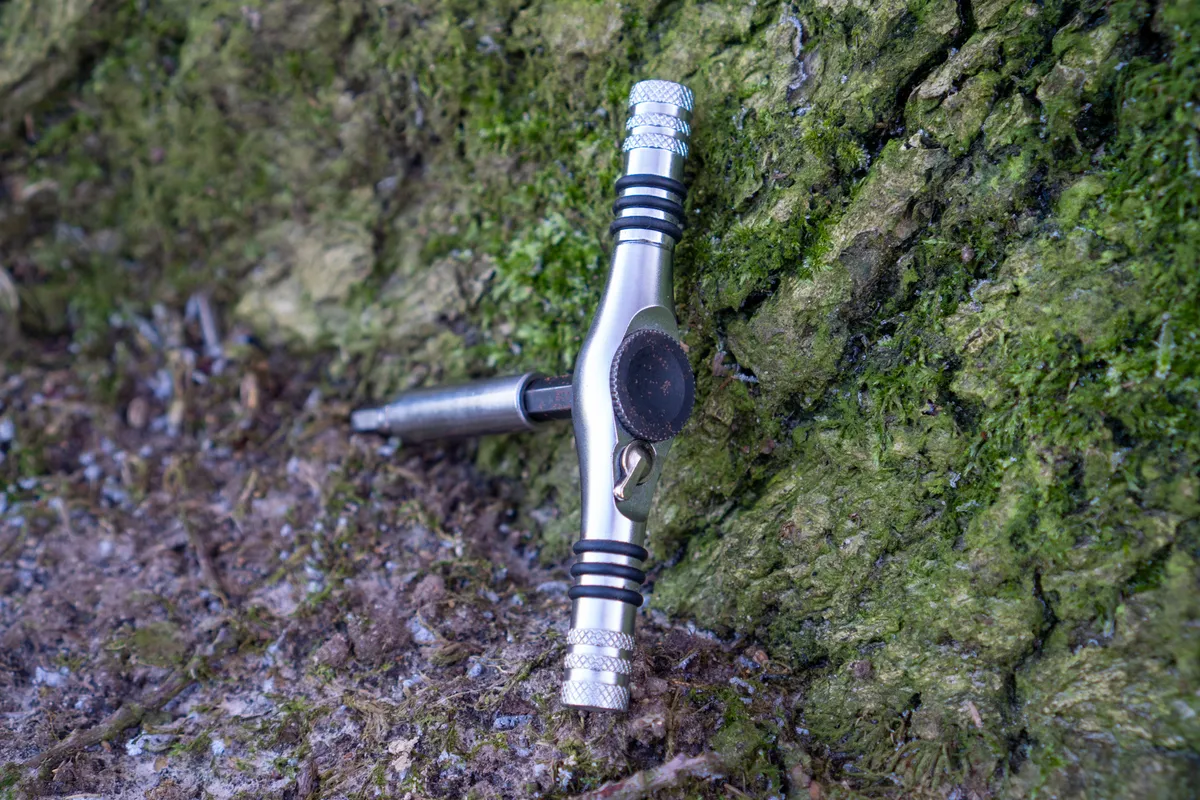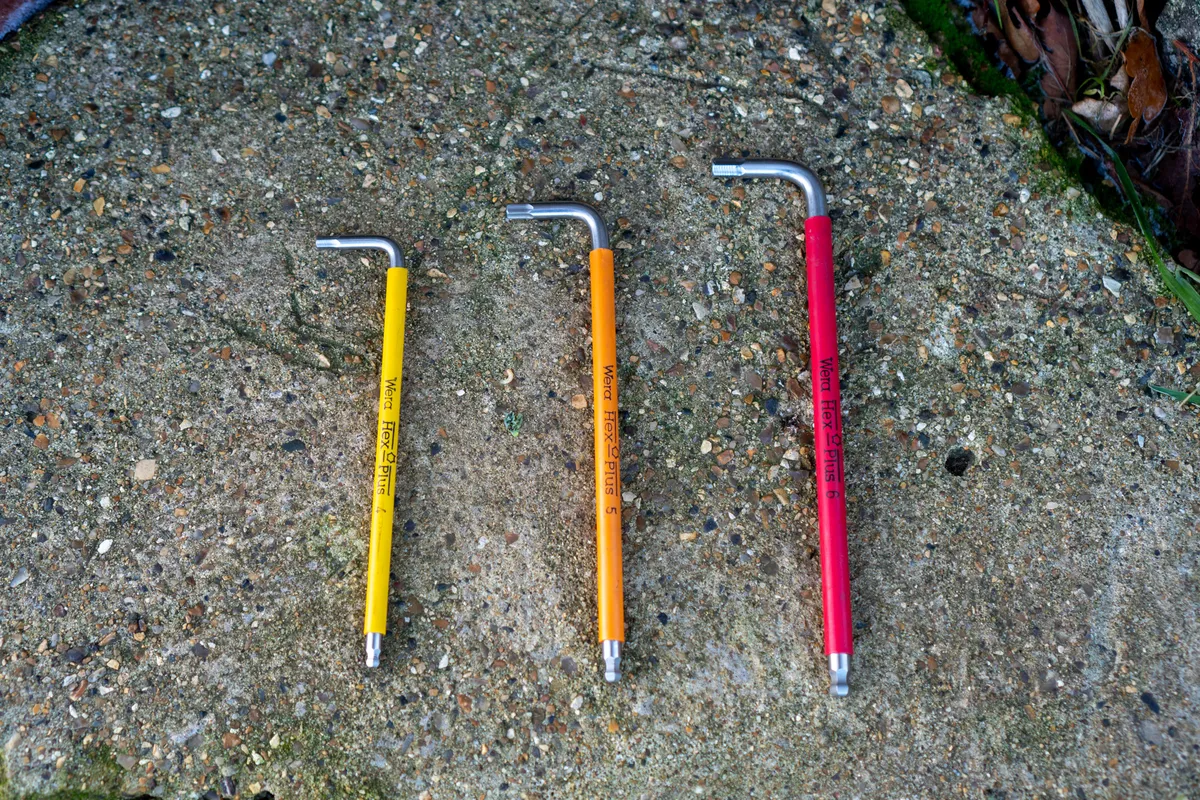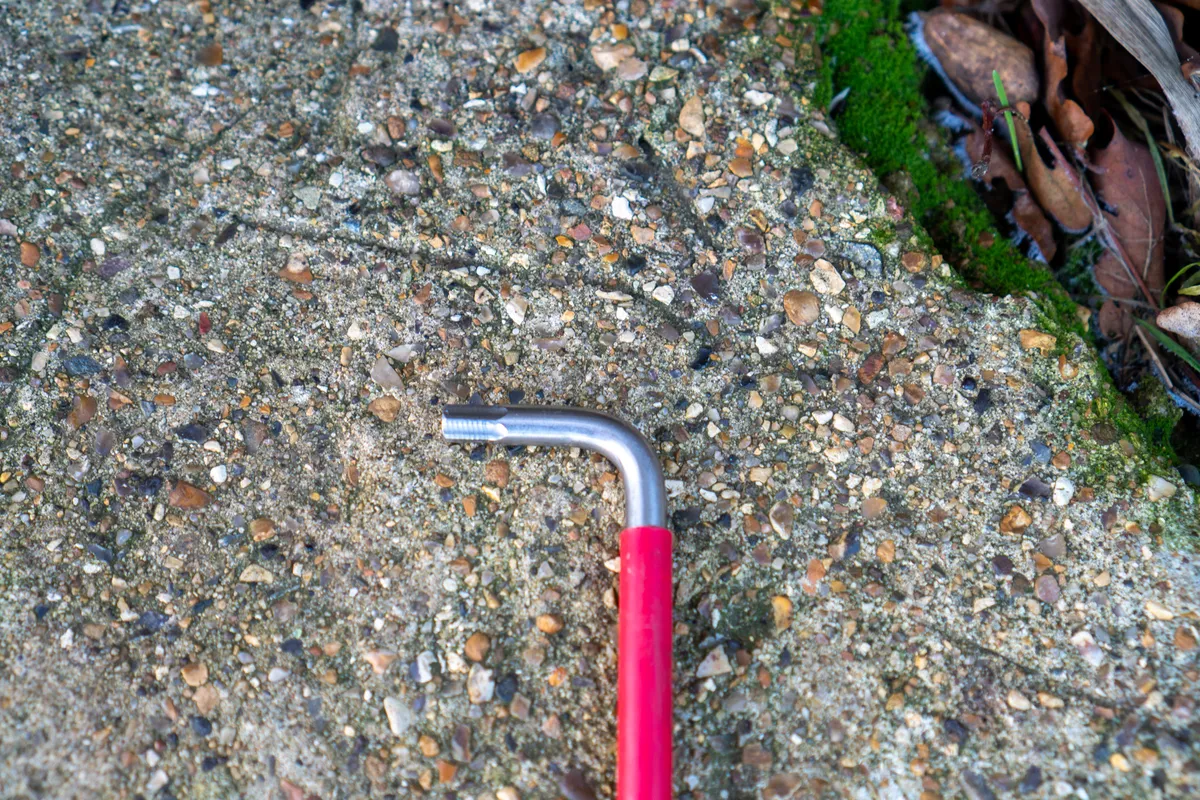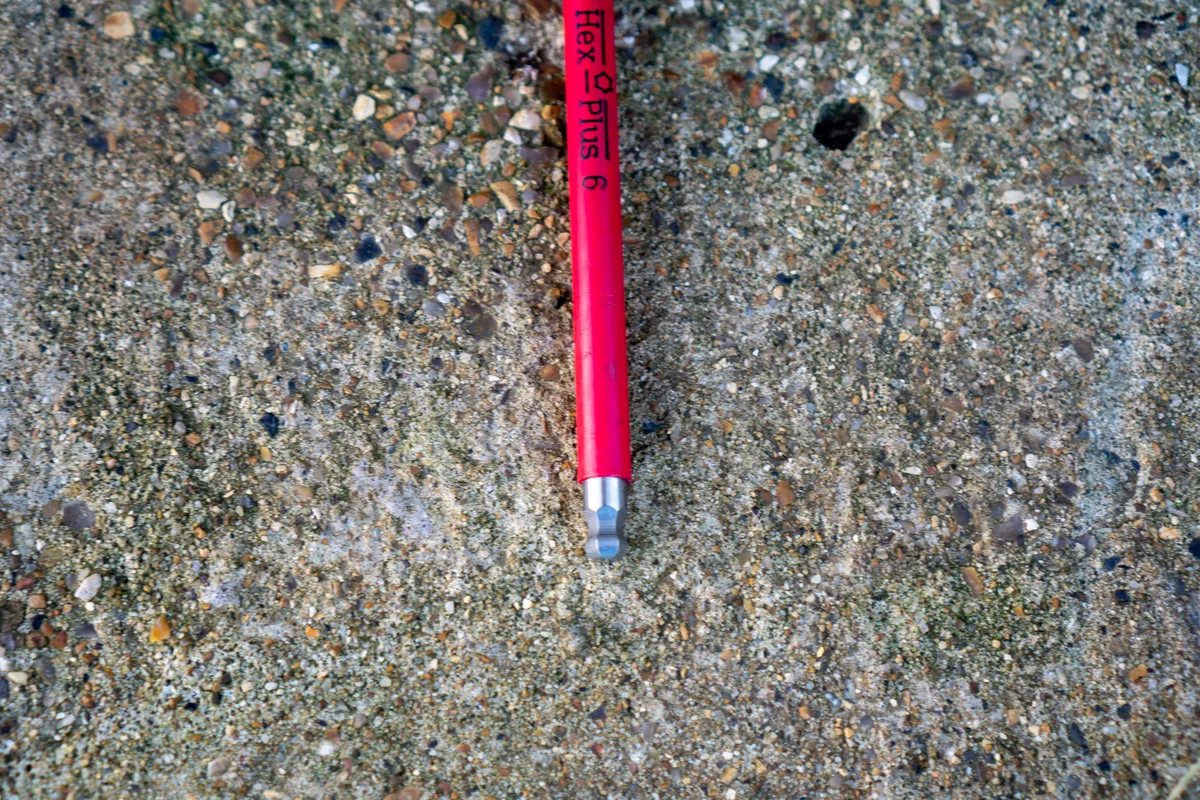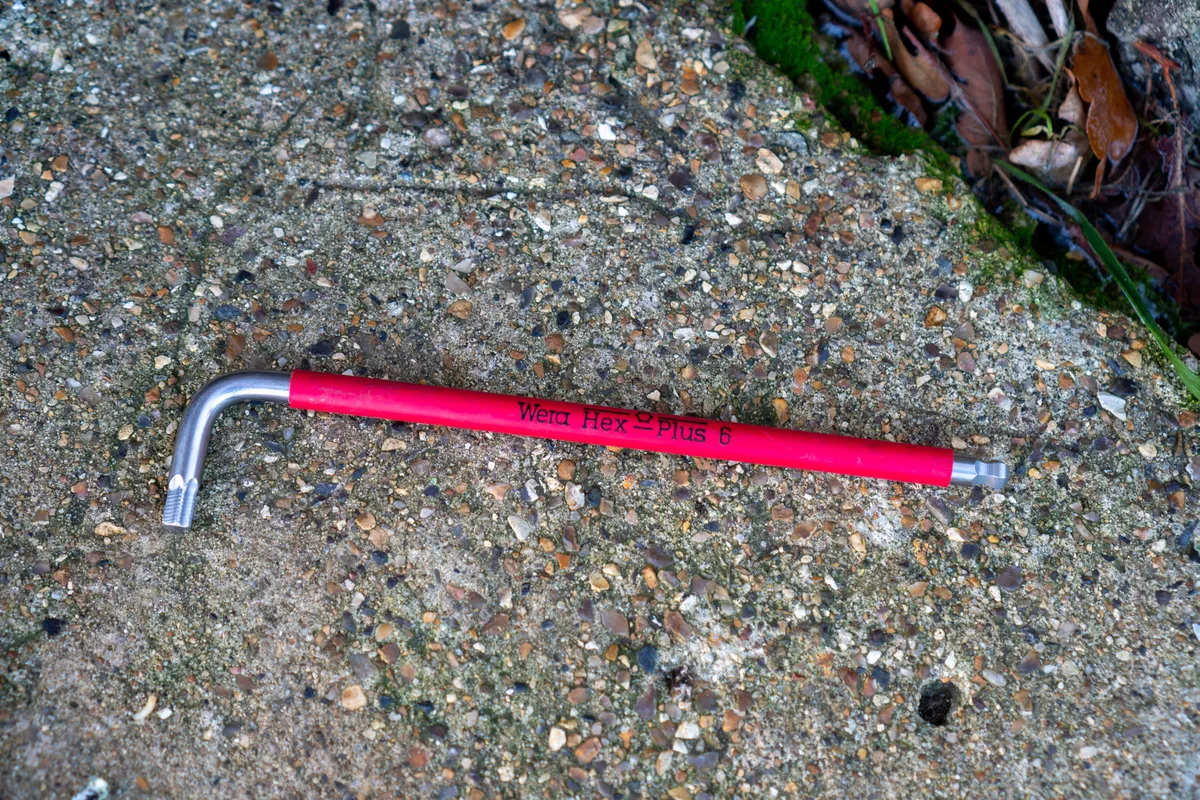I’m a strong believer in investing in quality tools. Buying cheap tools is uneconomical and could lead to more harm than good.
High-quality tools will make your workshop experience more rewarding and, providing you look after them, they will last you a long time.
I’ve spent years working as a mechanic throughout my cycling career and the following tools are the most treasured possessions in my (ever-expanding) tool collection.
They’ve survived battle wrenching in shops and on my own bikes over many years, and still see regular use, which is what makes them High Mileage Heroes.
A couple of years ago, senior technical editor Alex Evans provided a vivid look into his well-worn tool collection. Although the very definition of High-Mileage Heroes, these alphabetised picks of my generally lust-worthy tools are the antithesis of Alex’s commendable frugality.
Abbey Crombie and Whip-It cassette tools
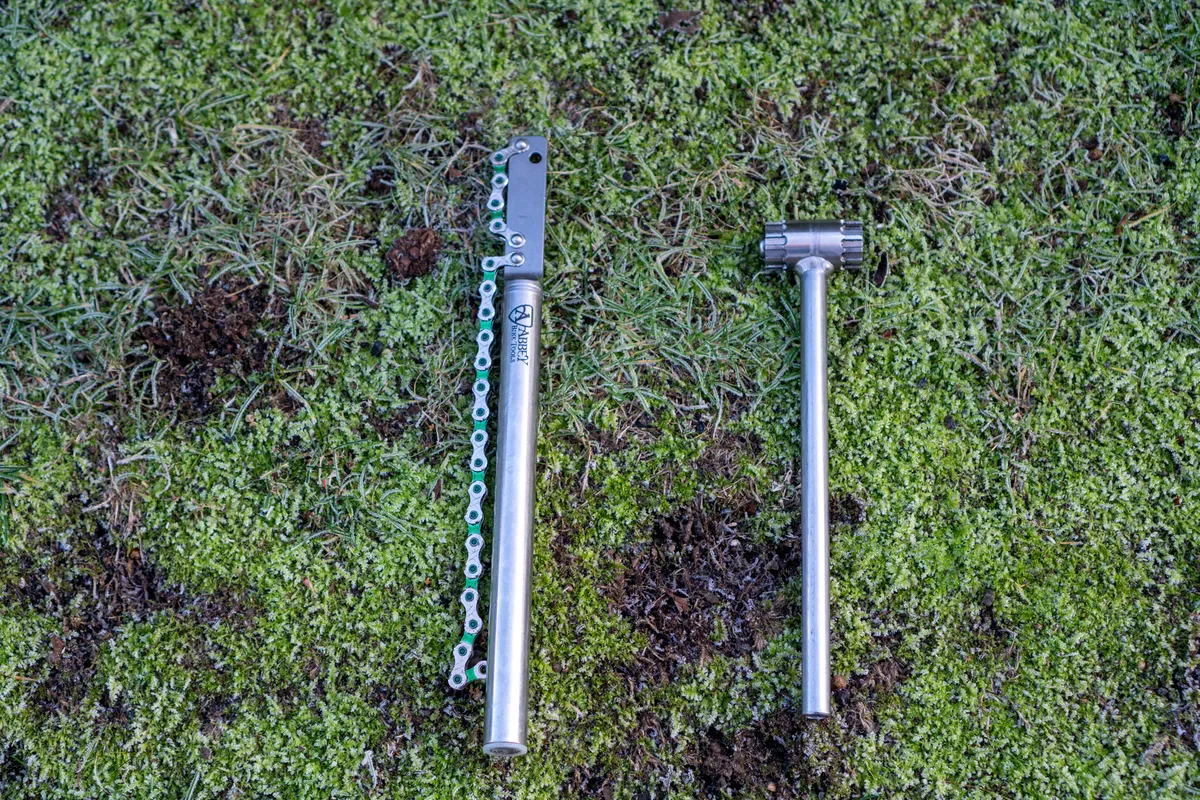
Conceived by a colleague pro mechanic Jeff Crombie worked with, Crombie asked his friend and former bike mechanic, Jason Quade to make one of his own. This cassette lockring tool essentially kickstarted Abbey Bike Tools.
The Crombie revolutionised cassette lockring tool designs with its elegant 'why didn’t I think of that?' design. Many carbon copies from other brands have been released since.
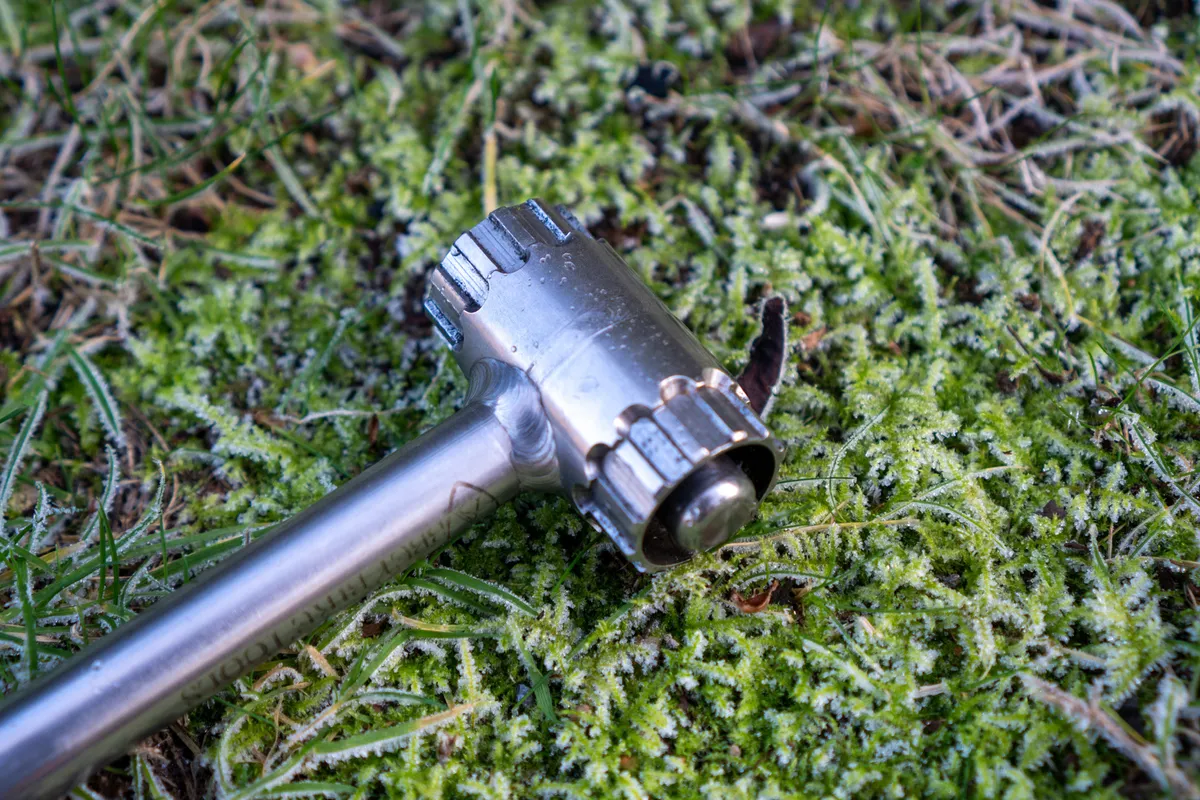
Precision-machined from 17-4 stainless steel for durability, the elegant handle is paired with a dual-sided head. Both sides are for Shimano/SRAM HG cassettes, but one side is for hubs with a quick-release axle and the other for thru-axle hubs.
The tool fits perfectly into the lockring splines and, if you use quick-release skewers, will fit over most nuts when replacing a cassette.
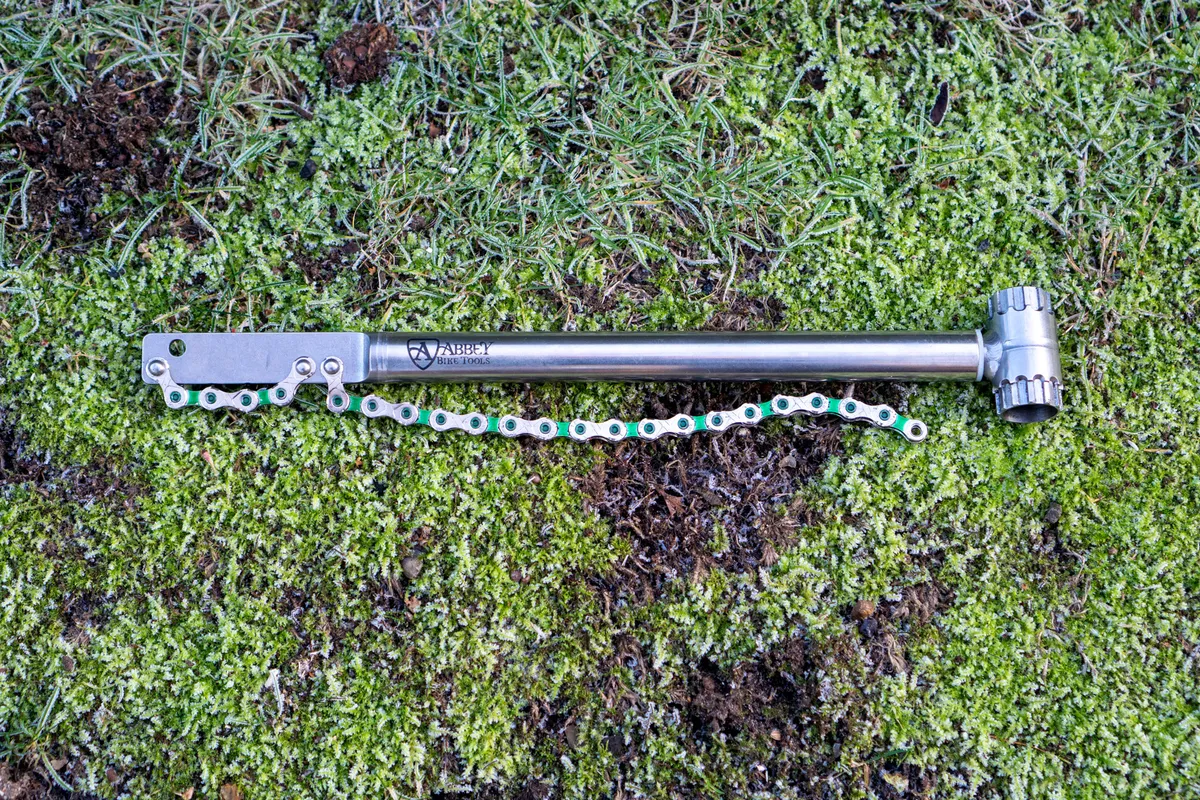
I’ve also got a second Crombie, with one side for Shimano/SRAM HG cassettes and the other for Campagnolo.
I also own socket versions of this tool in both Shimano/SRAM HG and Campagnolo variants, in case I come across a particularly stubborn cassette and need to pair it with a breaker bar.
I’ve found SRAM’s cassettes on its XD and XDR freehubs have a nasty habit of fusing in place if you don’t look after them religiously, which is when the sockets come out to play.
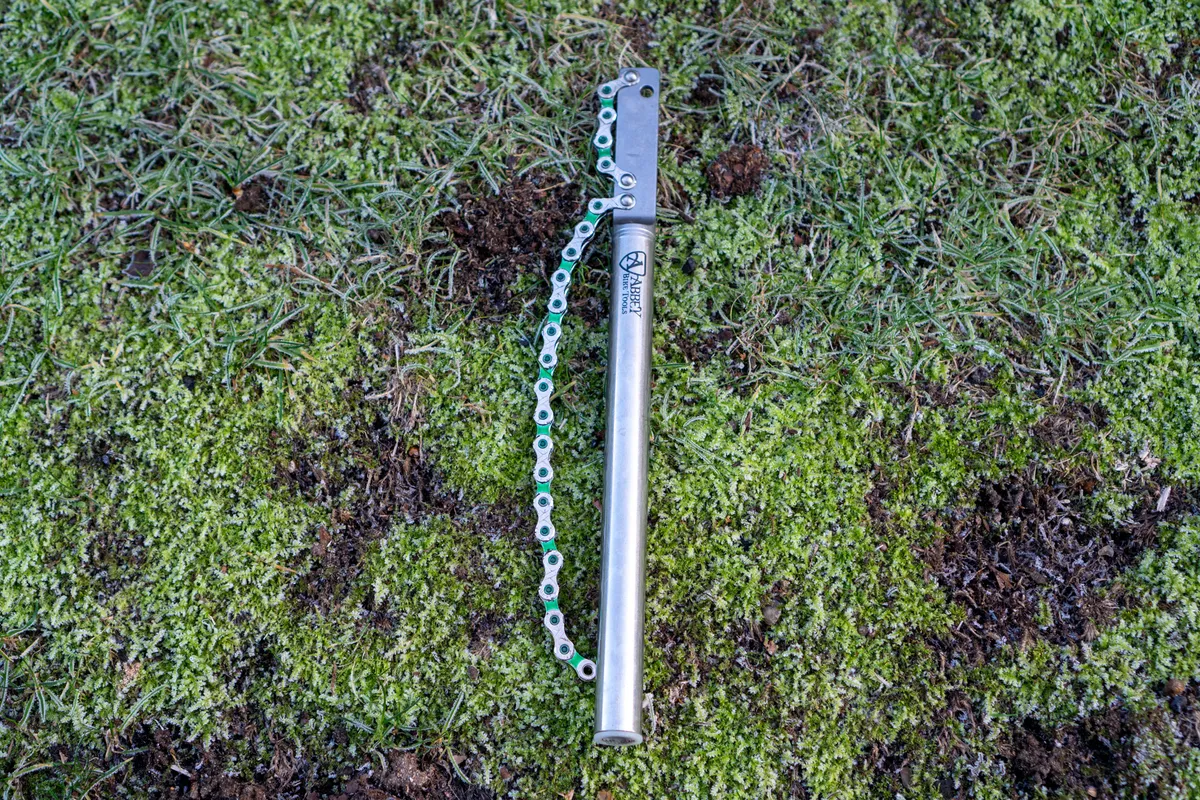
The Whip-It is a matching chain whip that stores conveniently in the Crombie’s handle. It, too, stands up to heavy use.
The pop sound as you take the lockring tool out from the chain whip is deeply satisfying.
The Crombie is also available in a Super Light variant with a hollowed-out handle, which would be great for the travelling mechanic trying to save extra grams, but overkill for me.
- Abbey Bike Tools Dual Sided Thru-Axle Crombie: £64/$53
- Abbey Bike Tools Whip-It Chain Whip: £56/$47
Knipex 95 61 190 Wire Rope Cutter Forged
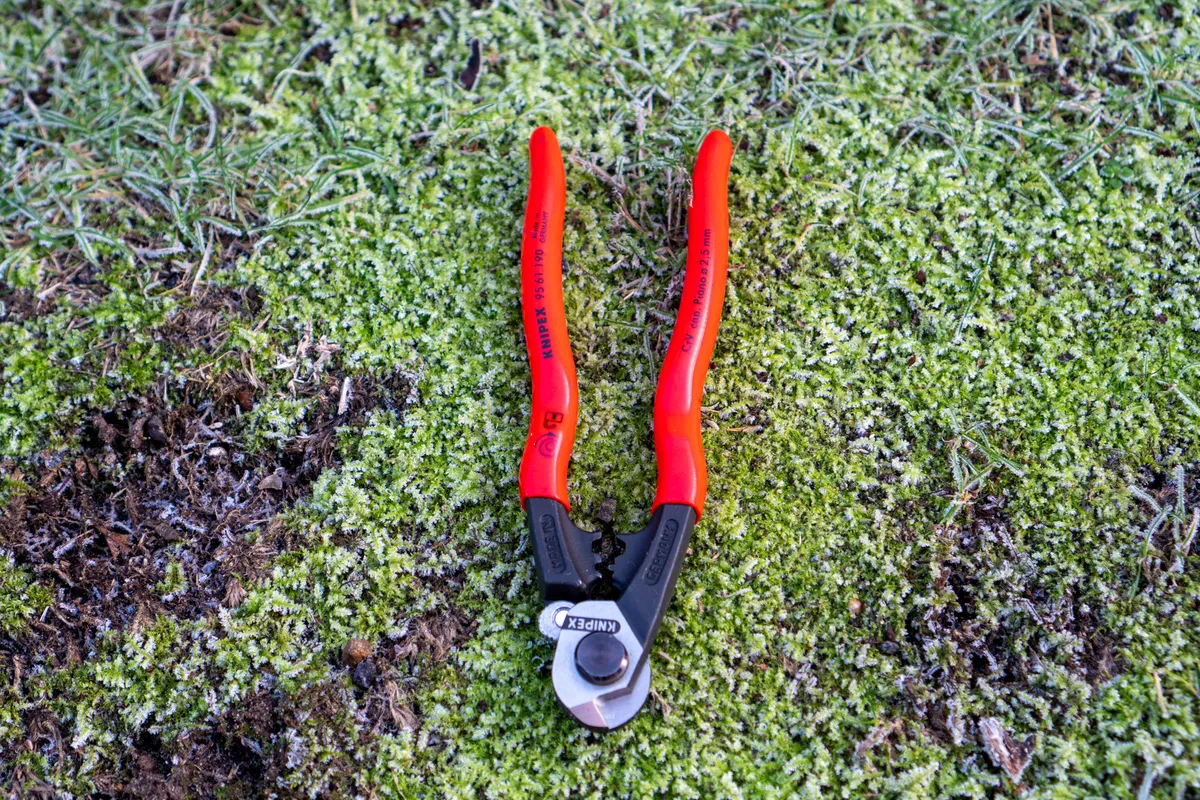
A quality cable cutter is an essential when it’s time to replace your bike’s brake and gear cables. A good cable cutter will neatly lop off the excess cable and the best cutters feature a groove where you can crimp the cable end cap.
Poor-quality cable cutters are more likely to fray the cable ends, turning what should be a simple snip of the cable into a mind-numbing experience of trying to gently re-ravel a frayed cable.
I came across these Knipex snips in the workshop when I started my previous job, and was instantly smitten by their precision and design.
Made in Germany, the plastic-coated handles are ergonomic and there’s a crimping function, as well as a locking feature for easy storage.
Put simply, they are the cleanest, smoothest-snipping cable cutters I’ve ever used.
I swiftly took out the credit card and replaced my Park cutters with a pair and they’ve been going strong and remained sharp ever since.
Park Tool DSD-2 Derailleur Screwdriver
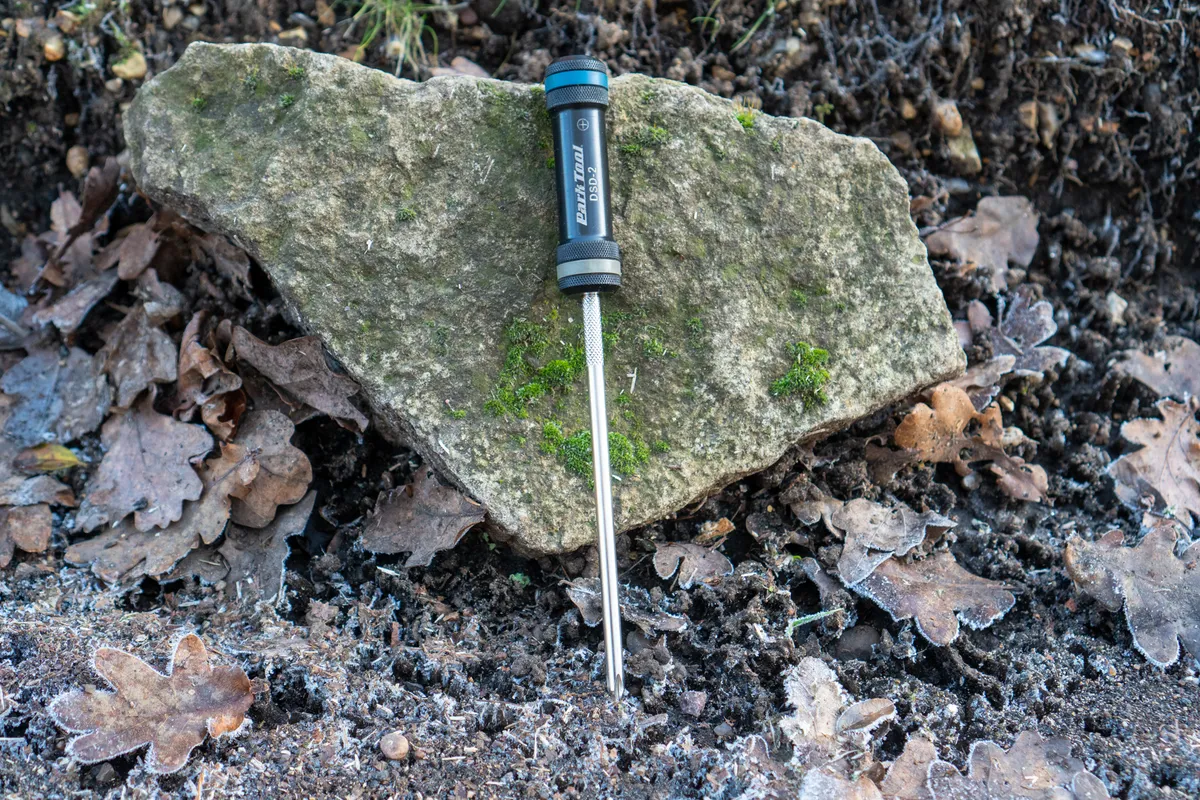
Park’s DSD-2 is designed to fit derailleur limit screws and exceeds the JIS standard.
Until Shimano switched to hex bolts across its rear derailleurs, its limit screws used the JIS standard, which is subtly different from Phillips.
As such, it can be easy to round the screw when using a Phillips screwdriver, especially if you’re ham-fisted when adjusting and indexing gears.
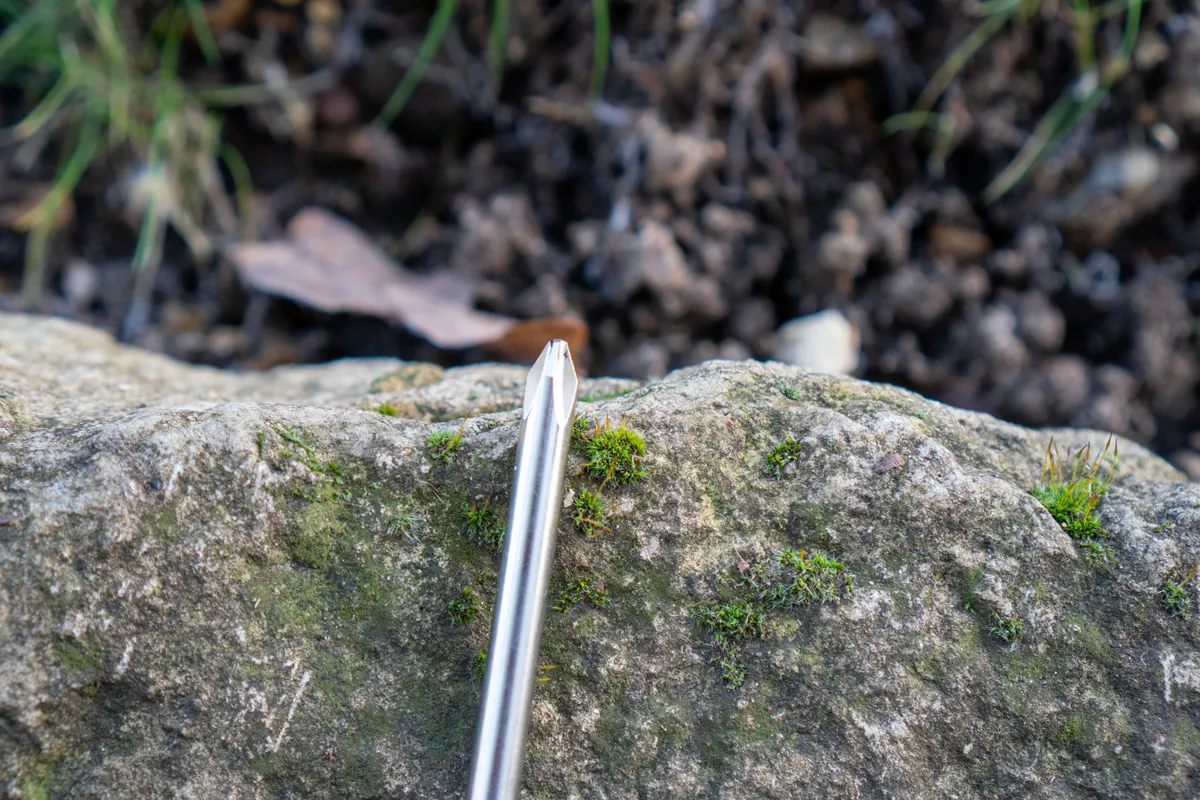
JIS is a defunct standard now and, as such, the DSD-2 is designed to conform with DIN 5260-PH/ISO 8762-1 for the nerds among you.
Park also makes a flat-bladed equivalent called the DSD-4, and hex variants in 2, 2.5 and 3mm for the latest rear derailleurs.

I was instantly enamoured by this screwdriver when it was first announced, and it’s proven itself time and time again in use. The knurled handle is the stuff of dreams and bites into JIS bolts like nothing else.
The long shaft is particularly helpful when working on derailleurs with awkward-to-reach limit screws.
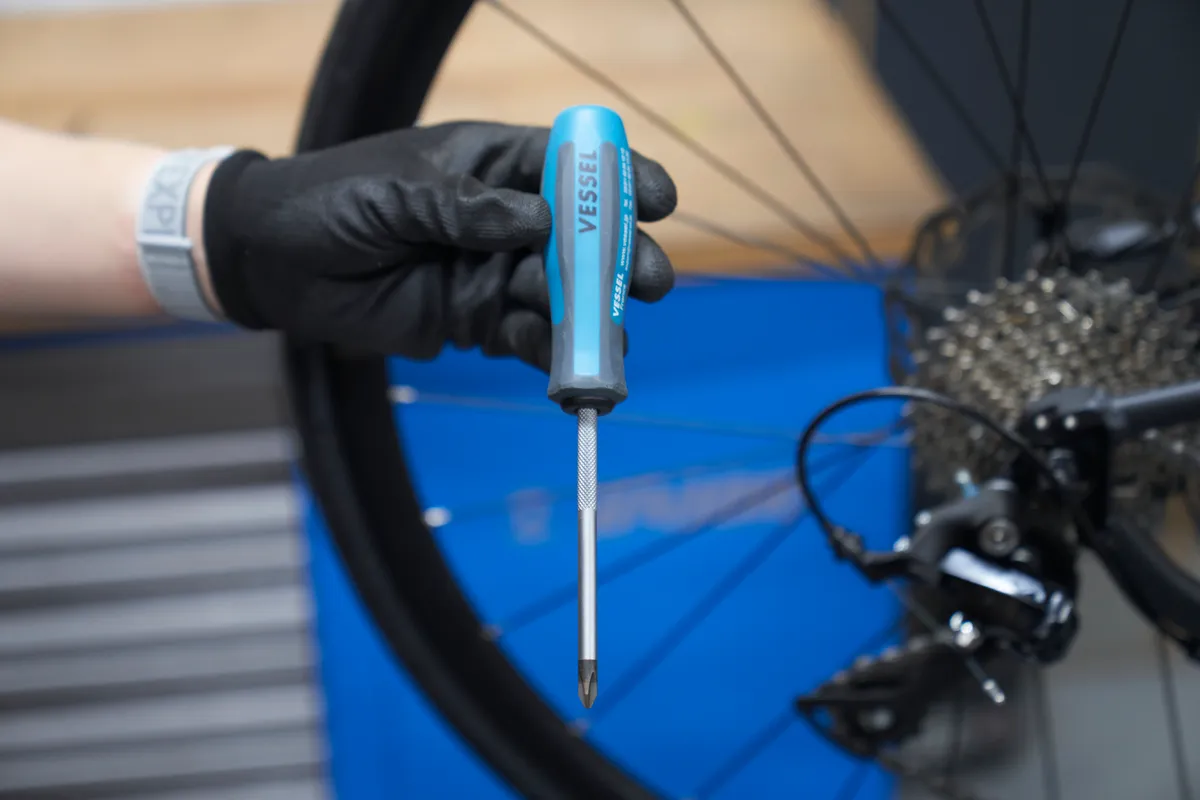
I’ve also got a Vessel alternative, which is equally good, and I debated which one to include in this list – I’ve owned this Park Tool one for longer and I think the grip is a hair more ergonomic.
- Park Tool DSD-2 Derailleur Screwdriver: £30/$35
Silca Ti-Torque and T-Ratchet
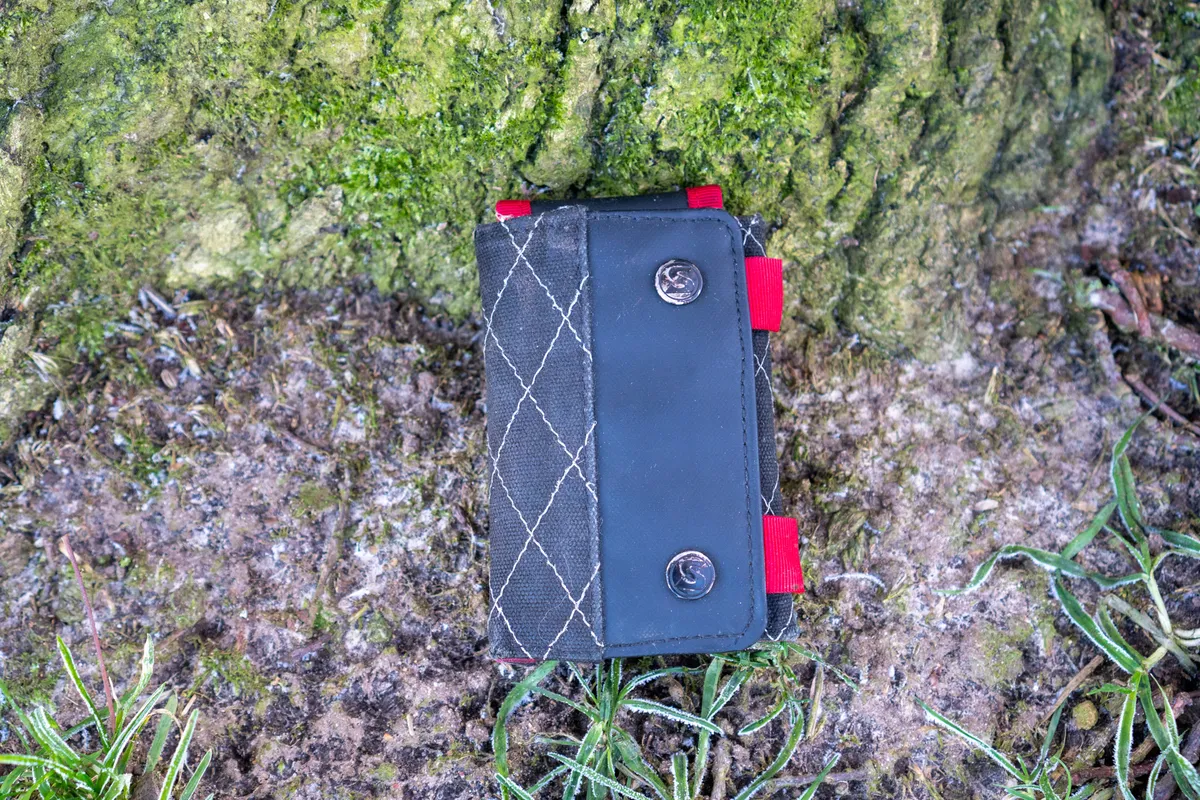
Silca’s Ti-Torque was my gateway into modular bit-based torque wrenches and no other brand’s effort has given me quite the same dopamine hit to date. It was also my first time owning a Silca product, starting a dangerous habit.
Presented in a luxurious duck-waxed canvas case (which is now beginning to show some signs of wear), the tool comprises a selection of stainless steel 1/4in S2 bits, paired with the torque and ratchet attachments.
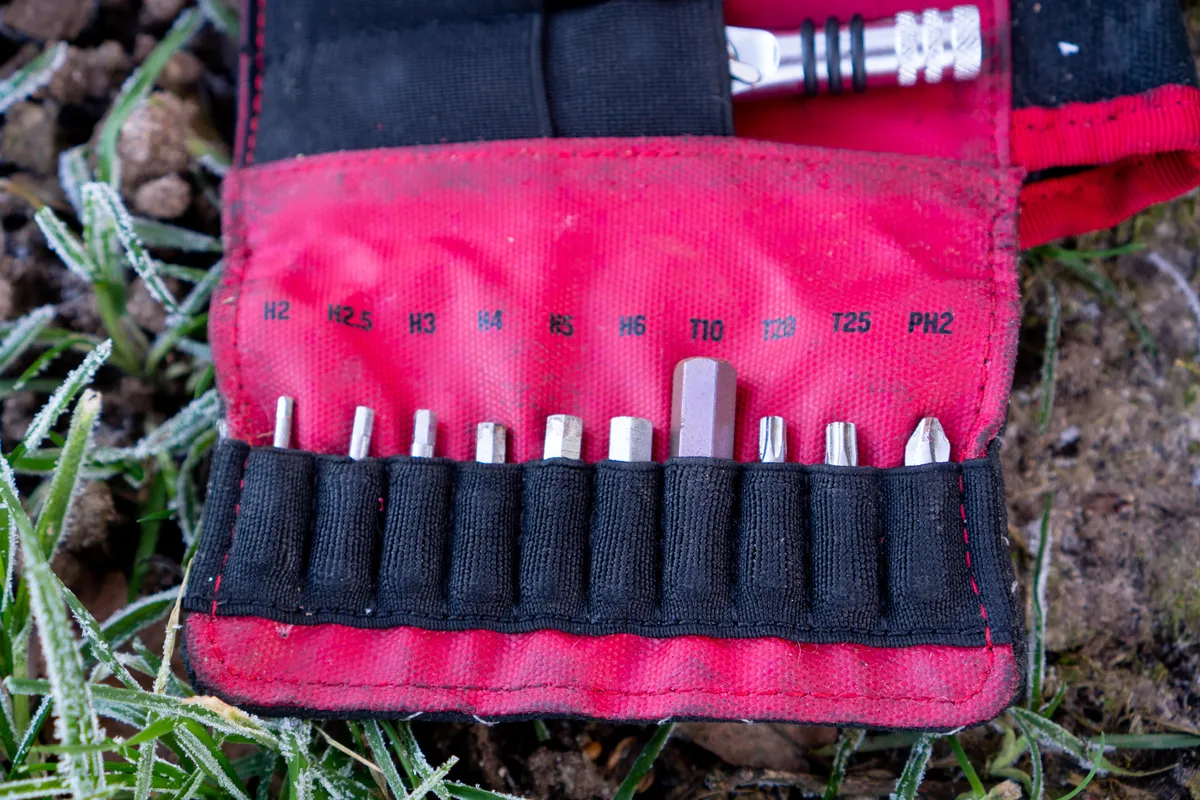
The handle can be converted between T and L-handles and the 72-tooth ratchet is satisfyingly smooth. It can be used as a ratchet or as a torque wrench with the Ti-Torque bar, with fasteners rated between 2 and 8Nm.
The torque bar features a scale – simply follow the arrow on the bottom of the bar until it aligns with your desired torque. It’s not as foolproof as using a click-type torque wrench, but it gives me peace of mind the bolt is suitably fastened.
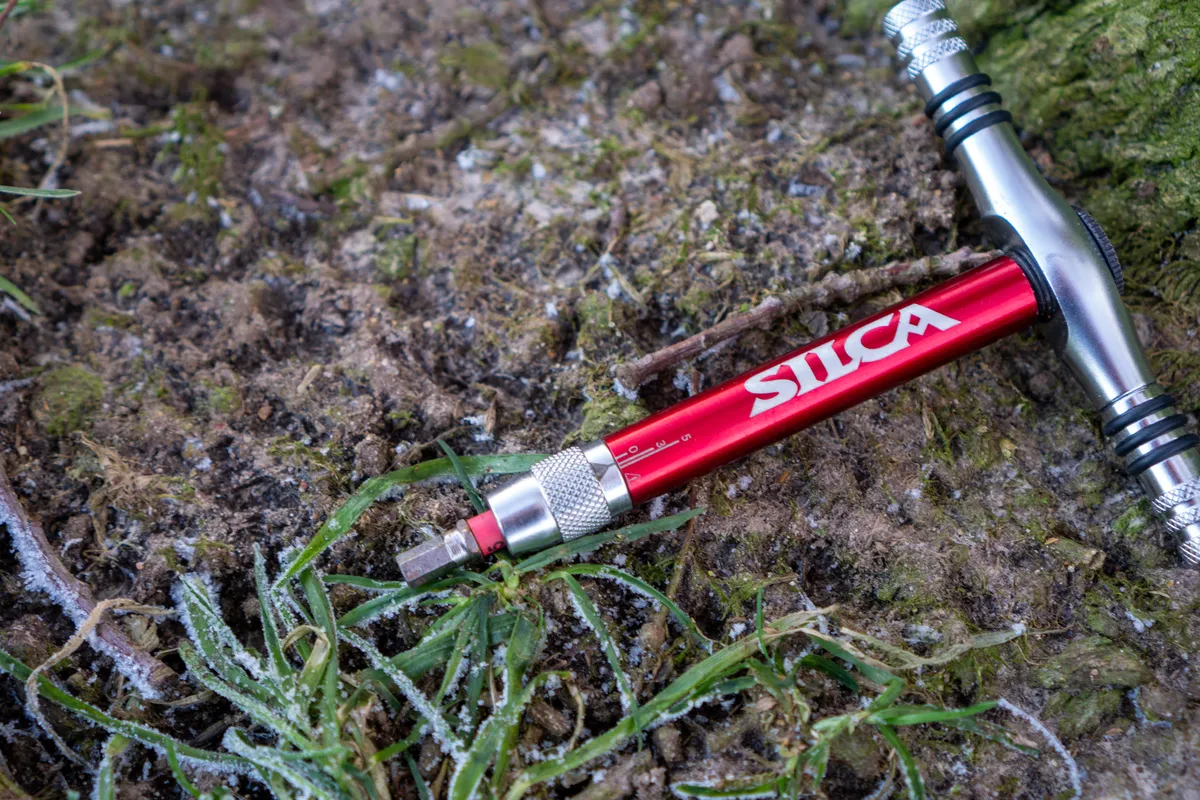
I bought this when I was working in a bike shop and mainly used it when I was adjusting seatpost clamps, saddle rails and stems for customers to try a bike for size, or when performing bike fits.
Not only was I fed up with using a cheap, own-branded multi-tool for adjusting bolts on expensive carbon bikes, I was also sick of having to frequently run down a flight of steps to nab a proper hex key or torque wrench that was needed for one of the mechanics to do their job.
Instantly mesmerised by the tool’s genius, a number of the sales staff quickly followed my cue.
It’s also a great companion for travelling in case I need to put a bike together or check over a rental, because it doubles up as a multi-tool.
It’s also just the ticket to carry in my jersey pocket on initial rides on review bikes, where I likely need to make adjustments.
- Silca Ti-Torque and T-Ratchet: £155/$125/€150
Silca T-Handle Folio
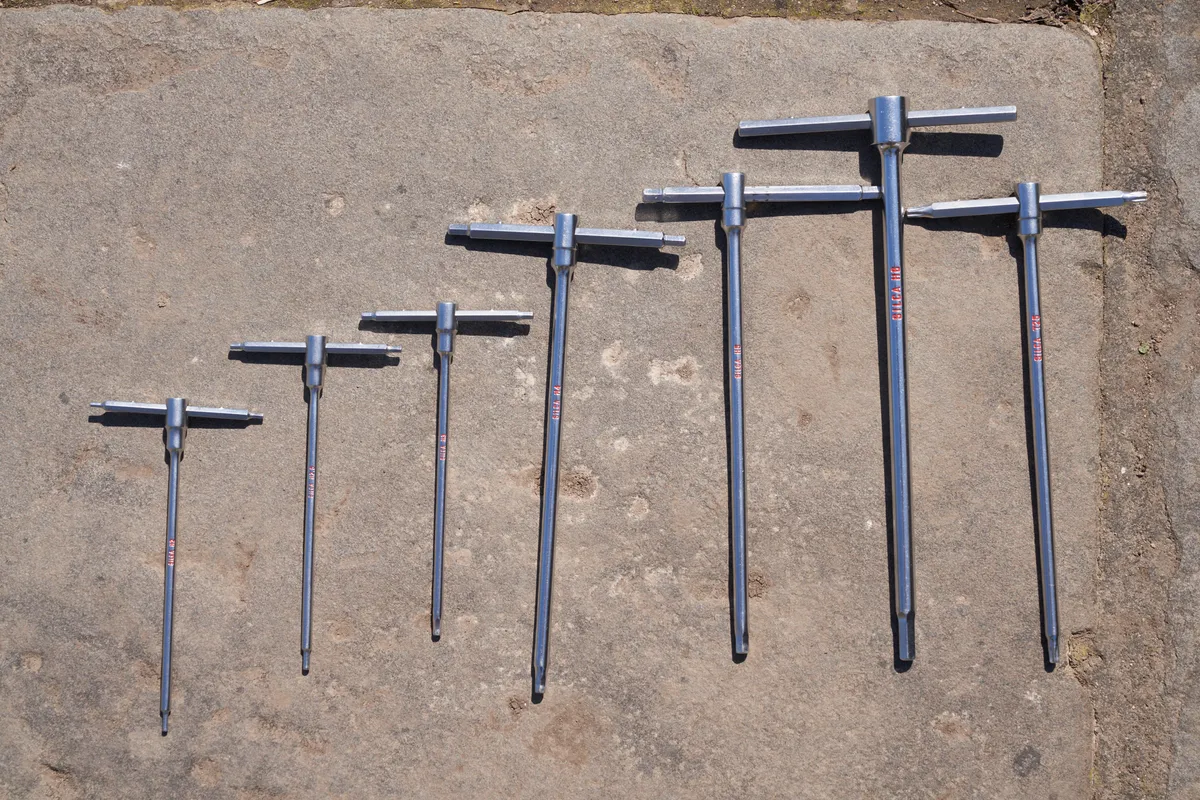
A double-entry for Silca and sadly now discontinued, its T-Handle Folio is my favourite set of T-Handle hex keys.
Although not suited to every application, the T-handle is my preferred type of hex key, offering a long reach to the bolt with great purchase.
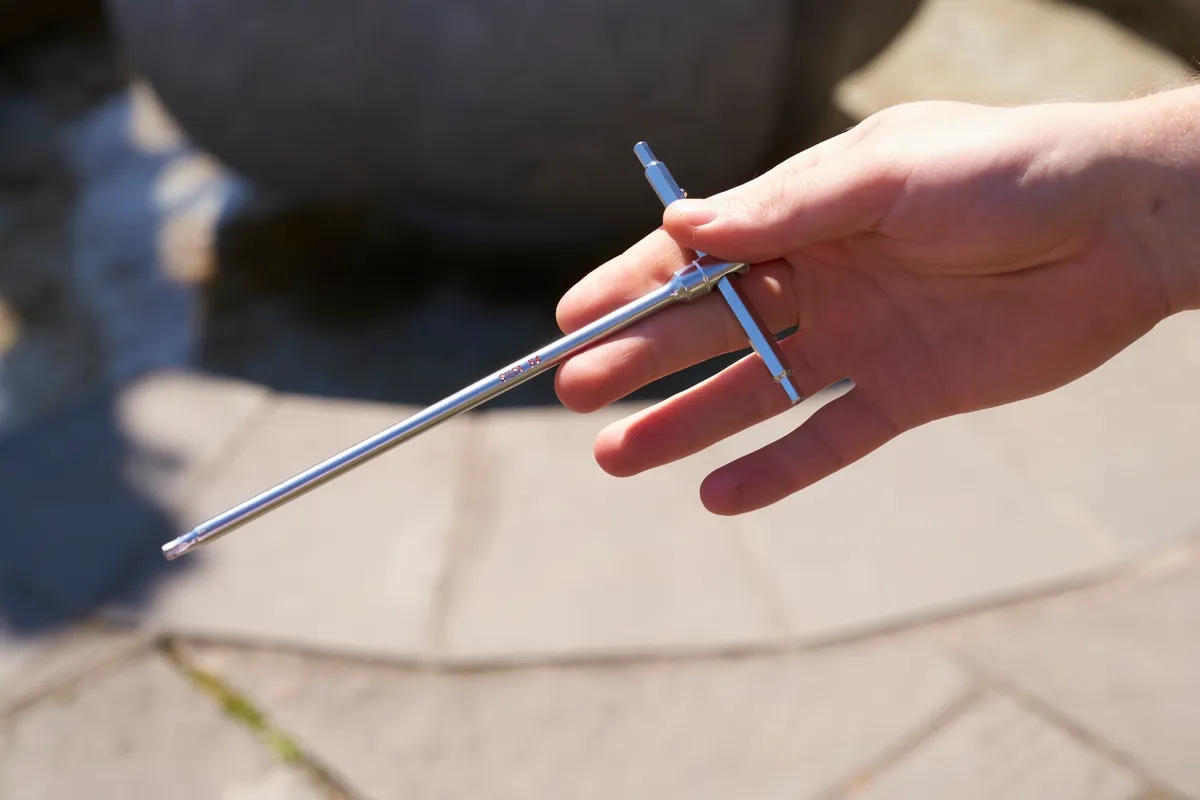
Like the Ti-Torque and T-Ratchet handle, the tools are forged from S2 steel and feature a sliding handle, which enables you to convert them from T to L-handles.
I used these almost daily in my workshop days and I’ve used them at home for years.
The set features 2mm through to 10mm hex keys, as well as T25 and T30 torx wrenches.
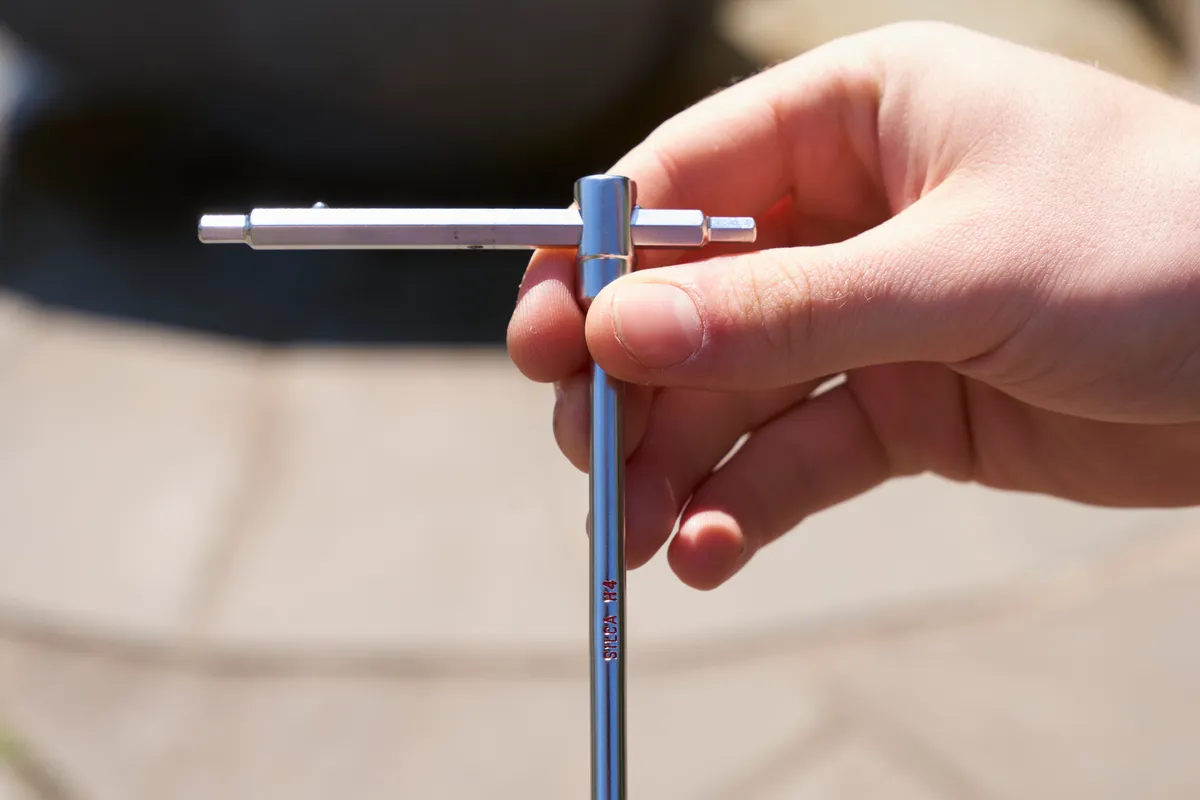
The sliding action is silky smooth and the handle offers ample leverage. They’ve been used on some difficult jobs and the ends still look like new.
Silca’s packed in some clever details, too. The 8mm has been optimised for the most leverage when removing stubborn pedals and the 10mm has been designed specifically for working on Campagnolo Ultra Torque crank bolts.
While the waxed duck canvas bag the keys are presented in is also undeniably a thing of beauty, I removed the keys and included them in my travelling tool pouch.
Wera Hex-Plus Stainless L-Key Set

I’m a sucker for a quality set of hex keys and the stainless steel Wera Hex-Plus set is my L-key of choice. L-keys are useful when you’re trying to access tighter clearance bolts and also allow for suitable leverage with their longer handle.
The set features 1.5mm to 10mm hex keys, each colour-coded so you can identify them easily. Wera also makes an equivalent torx set, which I own.
The Hex-Plus profile ensures a stronger contact with the bolt. They’re my favourite for working on fragile bolts, such as Shimano’s lever bleed port screw when bleeding Shimano disc brakes. I’d argue these are worth buying to work on this bolt alone.
I’ve always wondered why most workshops use the BlackLaser edition over the stainless steel variant. These feature a surface treatment designed to reduce corrosion, but I’ve found the stainless steel variant to better withstand rust. I’d highly recommend paying the £8 premium for these instead.
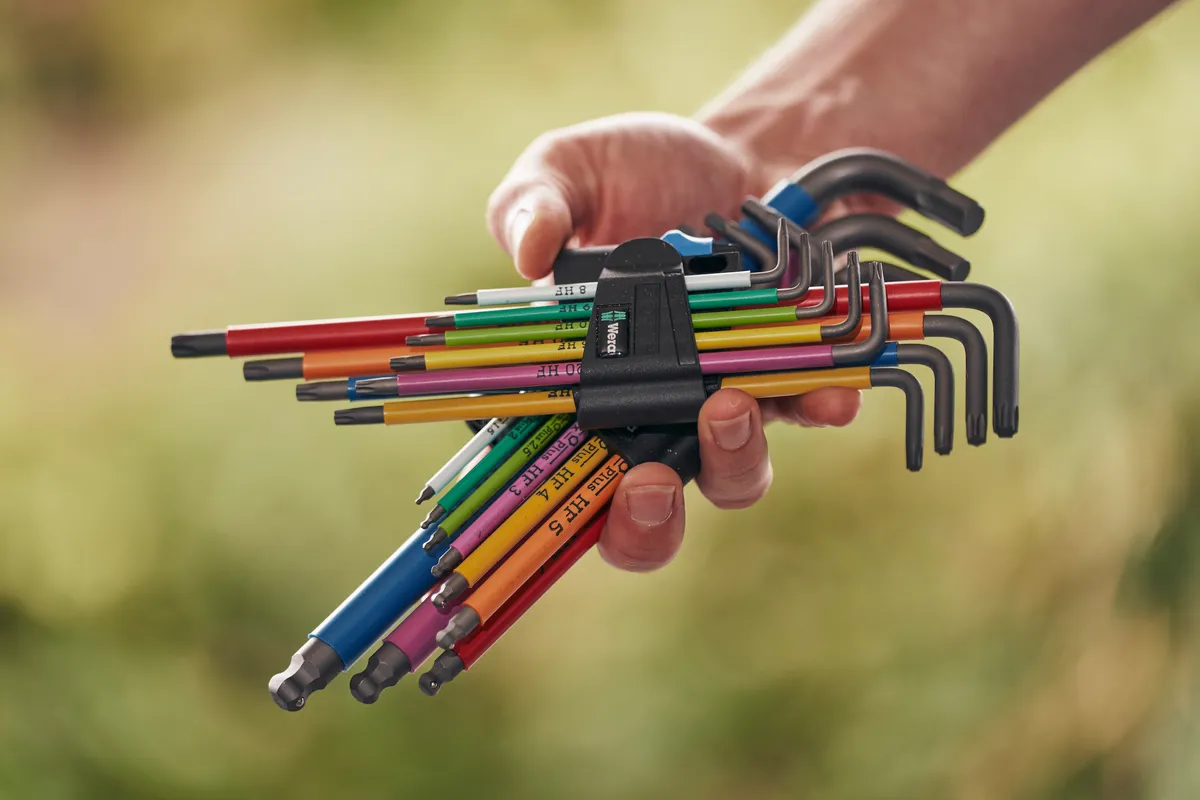
There was a point in time when these were my car set of hex keys. Having endured countless frost-bitten winter mornings in my tin can of a car, they show no signs of rust whatsoever.
I have seen the plastic ends come off these over time, but it still hasn’t happened to me. That said, I take good care of my tools and, if they dislodge, they’re not expensive to replace at £39.99.
- Wera Hex-Plus Stainless L-Key Set: £39.99
BikeRadar’s High-Mileage Heroes
High-Mileage Heroes showcases the products that have stood the test of time and become part of our everyday riding.
These aren’t reviews, but rather a chance to talk about the kit we depend on and the products we choose to use when we’re not reviewing fresh gear.
More from High-Mileage Heroes:
